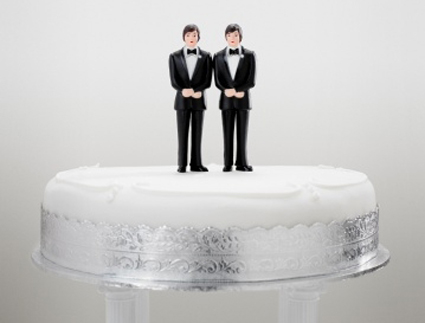How Progressive Are We: Canada and Same-Sex Marriage

“It’s bringing laws of the land up to contemporary society – I think the view we take here is that there’s no place for the state in the bedrooms of the nation. I think that what’s done in private between adults doesn’t concern the Criminal Code.” —Canadian Justice Minister Pierre Trudeau on amending homosexuality laws, 1967
“It is important for me to go ahead and affirm that I think same-sex couples should be able to get married.” —U.S. President Barack Obama on gay marriage, 2012
What a year of firsts 2005 was. Canada got its first black Governor General in Michaëlle Jean, Germany got its first female chancellor in Angela Merkel, the Church of England got its first African American archbishop in John Sentamu and French woman Isabelle Dinoire got a new smile thanks to the world’s first partial face transplant.
In addition to the “firsts”, 2005 featured a historic “fourth” when Canada became the final member in a quartet of countries to legally allow same-sex marriages.
Fast-forward to 2012, specifically this past Wednesday, when Barack Obama became the first American president to declare support for same-sex marriage. The U.S. political scene erupted in response, from those in support of the president to those condemning him.
All the while, many of us here in Canada – rainbow flags flying freely on poles and front porches – chuckled at the whole situation. Not only do we allow same-sex marriages, we’re home to one of the world’s largest and most celebrated gay pride festivals, attended by revellers from every corner of the globe (except the corner where the Mayor of Toronto’s office is located).
Canadians take same-sex marriage for granted, setting an example for other countries while proving unfounded the concerns of many U.S. conservatives that the move will usher in an era of people marrying children or animals. We sometimes forget, however, that same-sex marriage in Canada has been on the books for less than seven years. In fact, it was only a little over four decades ago that homosexuals in Canada were arrested as sex offenders. Sex offenders. Think about that.
It was already 1978 when homosexuality was finally removed as a basis for inadmissibility by Canadian immigration laws, and it wasn’t until the mid-1990s that Bill C-33 allowed for the Canadian Human Rights Act to include sexual orientation. In 1999, a Reform Party resolution to maintain the definition of marriage to include only heterosexual unions passed unhindered in the House of Commons, Alberta was still making efforts to ban same-sex marriage into the early 2000s and, as recent as 2007 – two years after same-sex marriage came into law – the Conservative government under Prime Minister Stephen Harper attempted to restore the traditional definition of heterosexual marriage.
Sure, overall Canadians tend be more forward-thinking than Americans on major issues. This fact was magnified by North Carolina’s move to outlaw same-sex marriage the day before President Obama’s historic announcement. After all, in North Carolina, marriage is considered a sacred institution between a man and woman, or two first cousins. You wouldn’t want to compromise that level of institutional integrity.
The lesson to be gleaned from the Canadian experience with same-sex marriage is that even in our relatively progressive country, legalizing it is a struggle that can take decades. Even we were beaten to the punch by three countries from “conservative” Europe: the Netherlands (April 1, 2001), Belgium (June 1, 2003) and Spain (July 3, 2005). Since 2005, South Africa (2006), Norway (2009), Sweden (May 2009), Argentina (2010), Iceland (2010) and Portugal (2010) have joined our ranks.
In the U.S., same-sex marriage is allowed in six states (Connecticut, Iowa, Massachusetts, New Hampshire, New York and Vermont) and the District of Columbia. In fact, Massachusetts beat Canada by legalizing it a year earlier.
Still, it’s inevitable that President Obama’s remarks, coincidentally (wink-wink) in an election year, will spark massive debate on both sides of the issue. If Canada can be looked upon as an example, however, it shows that a lot can change in time. After all, 40 years ago, homosexuals were considered sex offenders. Today, Toronto’s Mayor Rob Ford is widely considered the offender for NOT attending Pride Week events.
Pierre Trudeau’s words in 1967 were prophetic as it pertains to the direction his country eventually took on the issue of same-sex marriage. In half a century, American history will tell if Barack Obama’s words prove equally as wise.
-Mike Crisolago